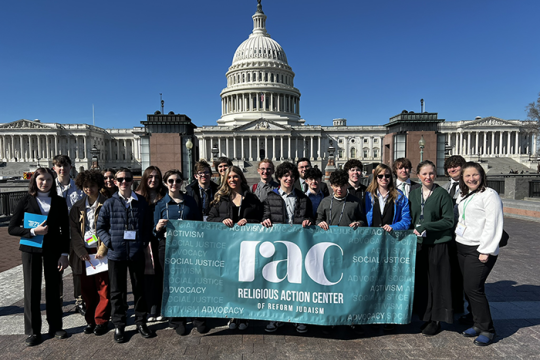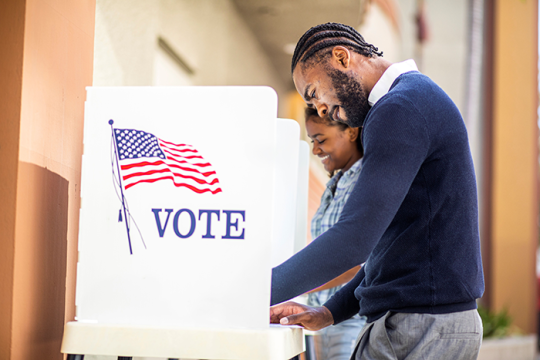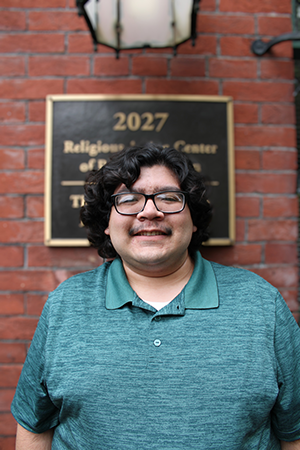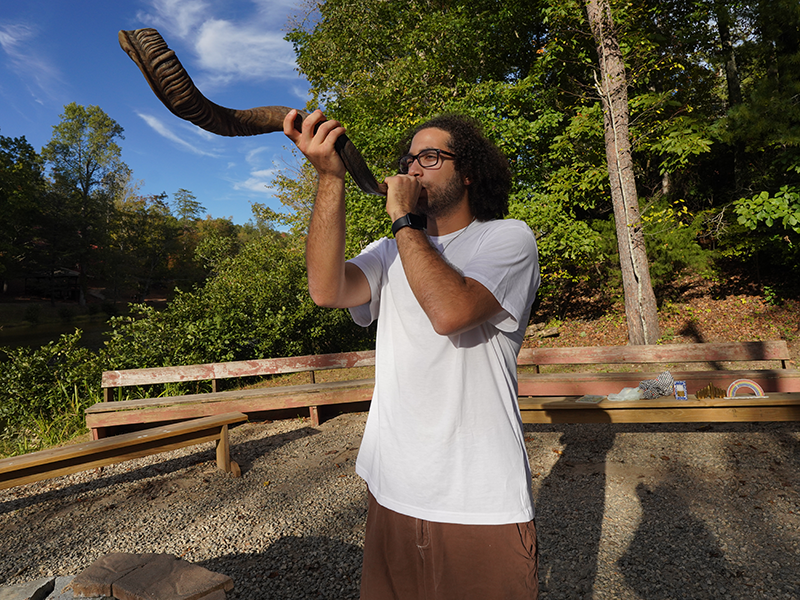
The RAC is proud to bring thousands of teens to Washington, D.C., for our annual L'Taken Social Justice Seminars. After three days of intensive programming and learning about just a few of the many issues prevalent in our country today, all participants travel to Capitol Hill to meet with their members of Congress and advocate for the things they care about.
This year, as we approach World Environment Day on June 5th, we are amplifying the voices of our L'Taken participants. These teens, who are at the forefront of our fight for environmental justice and climate change, are not just the future; they are the present. Their actions today will shape the world they are growing up in, and they will bear the consequences of our decisions. These teens embody the passion of the Reform Movement to make our voices heard and spur meaningful change.
This speech was written by Jacob N., Talia T., and Eliana L. from Congregation Kol Ami in White Plains, New York in February 2024.
As teenagers, we've known of and thought about climate change for as long as we can remember, but the issue became much more relevant to me personally last year, when my city, home, and school were filled with smoke from the Canadian wildfires. It was the day before finals, so even though I couldn't see the house down the street because of the smoke and could taste the fire before even stepping outside, I got on the bus to go to school. During the school day, everybody could see the smoke getting worse outside and seeping through the cracks to accumulate in our hallways. Each time I checked my phone, the Air Quality Index went up another 10, 50, 100 points. At one point, we had an index of 430, which, when outside for an hour in those conditions, is the equivalent of smoking a whole cigarette. This weather contributed to an 80 percent spike in asthma-related emergency room visits in my area, and this will continue to get worse, especially as we keep contributing to the deterioration of our atmosphere.
Derived from Deuteronomy, the phrase "Bal Tashchit" means "do not destroy," and as Jews, we feel that it is our obligation to conserve and protect the Earth's critical environmental resources. In the Talmud, there is a story in which the sage Honi meets a man planting a tree. After being told that it will take 70 years until the tree gives fruit, Honi asks the man whether he will be alive long enough to enjoy the fruit, and the man replies by saying "I found a fruitful world because my ancestors planted it for me. So, too, will I plant for my children." When it comes to climate change, the actions we take revolve around the future, and they revolve around the question of whether or not we will create a world that is, to use the old man's word, "fruitful" and safe for generations to come. Any action taken against climate change today is like planting a tree, and it is imperative that we plant as many of those trees as possible so that we have their fruit available when it is most needed.
As a country, we are already feeling the devastating effects of climate change, and with each passing year we are experiencing higher temperatures, more severe storms, and increasing dislocation of populations. Despite government efforts to mitigate these effects, over the past three decades, they have only gotten worse. The concentration of Carbon dioxide is the highest it has been in over 800,000 years. In New York, flooding from extreme weather events, including Hurricane Sandy, has caused billions of dollars of damage. The destruction caused by these events does not affect all equally; it disproportionately affects people in poverty and the homeless. Paired with the current migrant crisis in New York City, tens of thousands of people have been forced to weather storms and environmental crises with minimal support.
In response to these issues, we are asking Senator Schumer to support the A. Donald McEachin Environmental Justice for All Act (S.919). We believe that the bill would provide crucial and necessary support to the millions of at-risk Americans who are feeling the effects of the Climate Crisis the hardest. We encourage Senator Schumer to join his Democratic colleagues in cosponsoring the McEachin Act, along with pushing his colleagues on the Environment and Public Works Committee to move the bill forward. On a broader note, we ask that Senator Schumer keep the climate crisis at the forefront of his agenda, especially in his conversations with Speaker Johnson and President Biden concerning the 2024 budget after Thursday's continuing resolution.
Thank you again for taking the time to listen to us today, and we sincerely hope that you will consider our concerns about climate change as you take action in the weeks and months to come.
Join these L'Taken students in urging Congress to pass the Environmental Justice for All Act.
Related Posts

Highlights from the 2024-2025 L'Taken Season

Celebrating Disability Pride Month: Teens Urge Congress to Fund Special Education


